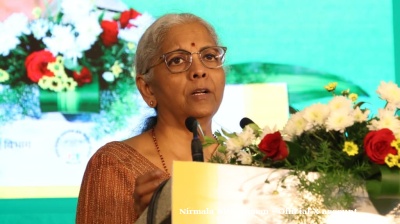The Ukrainian sugar industry faces a dire threat as the EU considers imposing restrictions on sugar exports from Ukraine, potentially leading to the closure of sugar factories, warned the acting chair of the board of the National Association of Sugar Producers of Ukraine, Nazar Mykhailovyn, as reported by Interfax-Ukraine news agency.
The European Commission's proposal, tabled on Jan. 31, seeks to maintain suspended import duties on Ukrainian exports to the EU until June 2025. However, certain products deemed "most sensitive," including Ukrainian sugar, poultry, and eggs, could face restrictions, capped at levels from 2022 and 2023.
Mykhailovyn expressed grave concerns over the potential impact of these curbs, stating, "Restrictions, licensing, and bans will lead to overproduction in the current season and the closure of factories," a move that would severely disrupt the country's sugar industry.
Ukrainian sugar factories produced 1.8mn metric tons of sugar in the 2023-2024 production year, with domestic demand estimated at 900,000 metric tons. The country's sugar exports last season were among the highest on record, highlighting the significance of the EU market for Ukrainian producers.
Food processing companies in the EU are key consumers of Ukrainian sugar due to its high quality and competitive pricing compared to domestic alternatives. If EU quotas or restrictions are imposed, Ukrainian producers may need to seek alternative markets in Asia, Africa, and non-EU countries, necessitating access to alternative shipping routes.
However, logistical challenges loom large, with Mykhailovyn noting that logistics costs have skyrocketed nearly two-and-a-half times due to border blockades, particularly at the Polish and Hungarian borders.
Poland has been vocal in its concerns about Ukrainian agricultural products flooding its domestic market, with Deputy Minister of Agriculture Michal Kolodziejczak recently expressing support for an upcoming nationwide farmers' strike and advocating for stringent border controls with Ukraine.
In response, Ukrainian agrarians have urged their government to intervene and safeguard preferential access to the EU market for Ukrainian agricultural products, emphasising the pivotal role these preferences play in sustaining production, employment, and foreign exchange earnings for Ukraine.
However, if Poland proceeds with implementing restrictions, Ukraine anticipates a significant reduction in currency exchange, posing economic challenges for the country's agricultural industry.
The European Commission's proposals are currently under consideration by the European Parliament and the Council of the European Union, with efforts underway to ensure a smooth transition to the new rules ahead of the June 5, 2024, deadline.
News

Bangladesh seeks death penalty for former Prime Minister Hasina
Bangladesh’s interim administration led by Nobel laureate Muhammad Yunus has requested the country’s criminal tribunal impose the death penalty on former Prime Minister Sheikh Hasina

Trump authorises CIA covert operations in Venezuela to topple Maduro
The White House has acknowledged granting the Central Intelligence Agency sweeping powers to conduct covert operations aimed at unseating President Nicolás Maduro, the NYT reported.

India’s finance minister to miss upcoming IMF and World Bank meetings
India’s Finance Minister Nirmala Sitharaman will not attend this week’s annual meetings of the International Monetary Fund and World Bank in Washington, as trade negotiations between New Delhi and Washington remain unresolved.

Young Ukrainians asylum seekers fleeing the war for Germany surges
The number of young Ukrainian fleeing the war and seeking asylum in Germany has surged, following Ukraine’s decision to partially lift its travel ban for men aged 18 to 22, according to figures from the German Interior Ministry.



